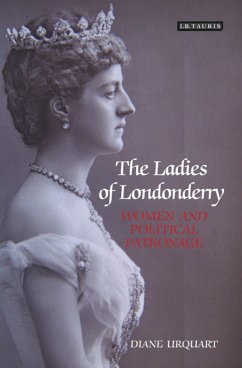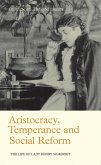Against a backdrop of increasing democracy and the associated process of aristocratic decline, this book examines the political influence of the leading Tory hostesses, the Marchionesses of Londonderry. Over one hundred and fifty years, from 1800-1959, these women were patrons and confidantes to key political figures such as Disraeli, Bonar Law, Edward Carson and Ramsay MacDonald. By the late 19th century upper-class women were at the height of their prowess, exerting political sway by private means whilst exploiting more public avenues of political work: canvassing, addressing meetings and leading the new associations established in an attempt to educate a mass electorate. At that time this hybrid of private and public aristocratic politicking aroused little criticism but, by the interwar period, the hold that the 7th Marchioness of Londonderry, Edith Vane-Tempest-Stewart, allegedly had over MacDonald prompted widespread criticism of her role as the 'Mother' of the National Government.
The lives of these vibrant and fascinating women have long been overlooked in histories of the nineteenth and early twentieth centuries, as well as in studies of conservatism, unionism or the aristocracy. Despite their social and political importance, few of their contemporaries acknowledged their influence, partly because of the indirect way that aristocratic women exerted political power, and their place in society was essentially defined by their male relatives. The Ladies of Londonderry offers the first examination of the poweful political hostesses of the Anglo-Irish establishment and sheds considerable light on the workings of 19th and 20th-century politics.
The lives of these vibrant and fascinating women have long been overlooked in histories of the nineteenth and early twentieth centuries, as well as in studies of conservatism, unionism or the aristocracy. Despite their social and political importance, few of their contemporaries acknowledged their influence, partly because of the indirect way that aristocratic women exerted political power, and their place in society was essentially defined by their male relatives. The Ladies of Londonderry offers the first examination of the poweful political hostesses of the Anglo-Irish establishment and sheds considerable light on the workings of 19th and 20th-century politics.









